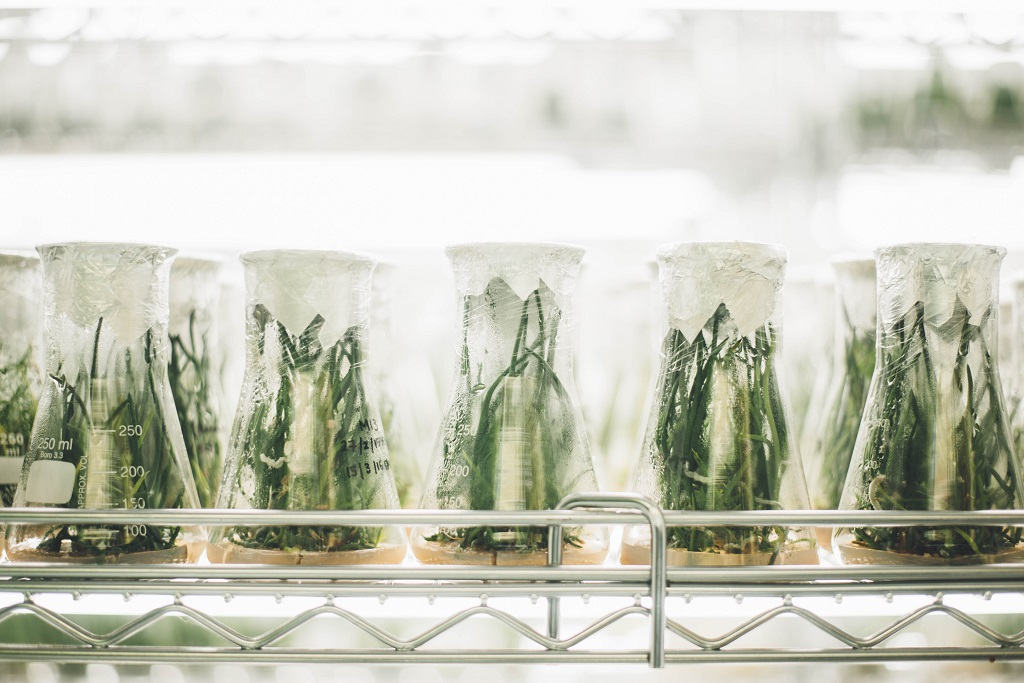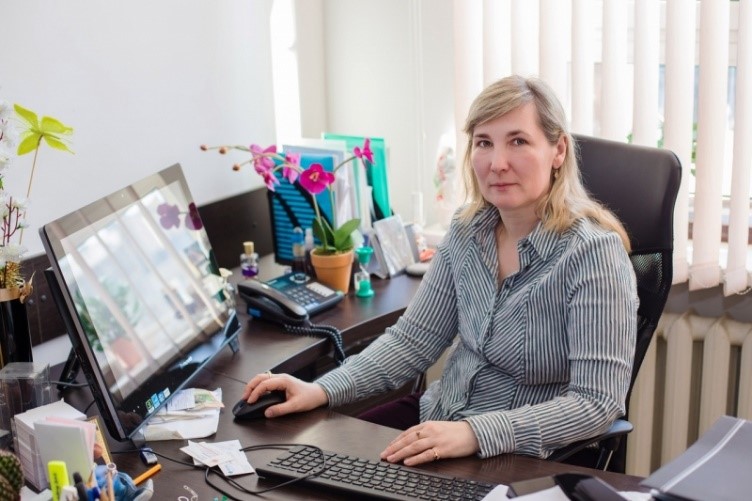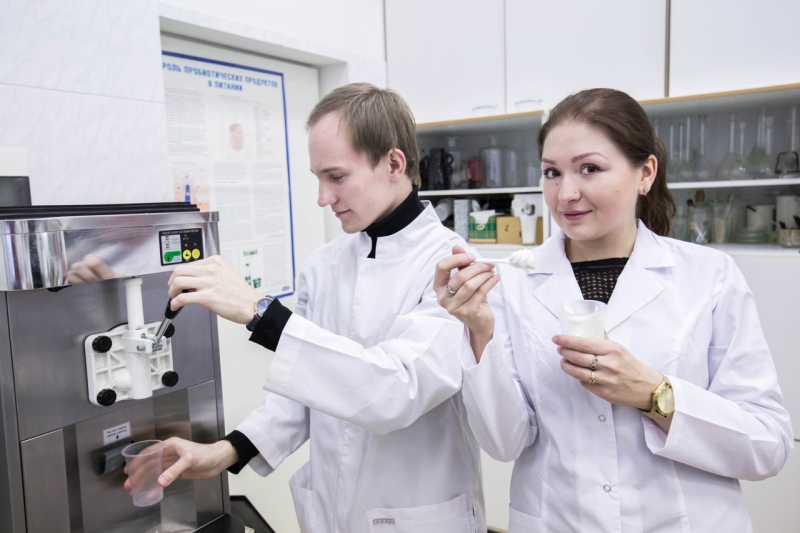
Photo: chuttersnap / Unsplash
Green economy
The market for "green" technologies is growing - in 2018 it was estimated at $ 6.85 billion, but experts expect that by 2026 its volume will increase to $ 44.6 billion. Today, most European countries are engaged in the transformation of the food system and efficient energy .
ITMO University has two master's programs on the topic - " Bioeconomics and Resource Management " and " Food Biotechnology ". We will tell you what projects the masters carry out.
Bioeconomics and resource management
This is a new master's program that we launched in 2019. It is deployed at the Faculty of Applied Optics (FPO). Students study issues related to the development of environmentally friendly technologies in various industries.
“The development of society is impossible without the integration of knowledge and methods of individual disciplines, that is, without interdisciplinarity. Our program, Bioeconomics and Resource Management, focuses on energy and resource conservation technologies. They are used in the chemical, oil and gas, medical, food industries ”
- Maya Uspenskaya , Professor, Department of Applied Optics
What bioeconomists can do. Students enrolled in the Bioeconomics and Resource Management program can choose the following specializations:
- Programmable materials . It studies computer modeling, designs recycling and waste management solutions, and explores the characteristics of smart materials . This is a class of materials with the same physical properties, but different composition.
- Resource Saving at Fuel and Energy Complex Enterprises . Teachers introduce students to the structure of enterprises in the fuel and energy complex, teach them to program well-known technological processes and develop new ones.
- . - . , , .
In the photo: Maya Uspenskaya
 Where do they work.In addition to theoretical knowledge, masters receive practical skills and undergo internships at Russian enterprises.
Where do they work.In addition to theoretical knowledge, masters receive practical skills and undergo internships at Russian enterprises.
Among the partners are companies from the medical sector, food, chemical and oil and gas industries - "Russian Food", "Baltic Coast", "Lumex", "Laser Systems" and many others.
This year, six people underwent practical training at OJSC Gazpromneft STC. Experts studied methods of increasing the efficiency of oil production.
Graduates of the master'sprogram willnot onlybe ableto continue working in one of the specialized enterprises, but also be able to found their own company.
« , — , , . , , - , , . , , , . »
— ,
As part of this program, students explore technologies for the production of food from plant and biomodified raw materials. This fact imposes special requirements on students - they must have knowledge in chemistry, medicine, bionics, and even photonics.

Photo: ITMO University
“Our programs are attended by graduates of chemical-technological, pharmaceutical, agricultural, technical universities, very rarely - economic ones. It can be difficult for economists, but for non-core graduates we have a system of pre-training and additional training in the learning process. Our students carry out interdisciplinary scientific research together with students from other fields ”
- Olga Volkova , Dean of the Faculty of Food Biotechnology and Engineering, ITMO University
What biotechnologists can do. Students learn to create and modify plant and protein products, modernize storage technologies. Their competence also includes microbiological synthesis, biocatalysis, genetic engineering and nanotechnology.
“As our dean says,“ love comes and goes, but you always want to eat. ” Seriously, I really believe that biotechnology is the future, because consumption is growing and in these conditions the number of tasks for scientists is only increasing: firstly, we must make food safe, and, secondly, provide an opportunity for it could get everything ”
- Elizaveta Punchenko , is studying under the program“ Food Biotechnology ”

Students also develop new resource-saving technologies and functional foods. An example of such a product is the Foyt cocktail from the team from our accelerator - we talked about it earlier .
“Functional foods have become a new trend in the study of food biotechnology. Science has proven the effect of food on gene expression. New food products, taking into account the individual characteristics of a person, help in the treatment of serious diseases: diabetes, heart and vascular diseases, neoplasms. Functional product developers work with doctors. Thus, applicants for biotechnology programs should strive to help people be healthy "
- Nadezhda Barakova , Head of the Food Biotechnology Program
ITMO University works with a large number of partners - including in the biotechnology field - so our students travel abroad to learn from foreign colleagues. In 2017, three students from the Faculty of Food Biotechnology and Engineering spent a semester at the Sup Biotech Paris school. There they completed several design work and began to study new subjects for themselves - biomimetics, synthetic biology and bioinformatics.
Where do graduate students work? In various specialized organizations throughout the country - Danone, Heineken, Fazer and others. Some choose a narrower specialization - for example, brewing (one of the students works at Baltika).
« . , , . .
. , , . «» — « », . . , . »
— , Head of Biotechnological Processes Development at Baltika Brewing Company
Many alumni, as in the case of the Bioeconomics and Resource Management program, become company founders. ITMO instructors teach how to start and manage your own production.
« 2001 « ». . , , .
, : , , , . , - . , — . , »
— , « »
ITMO University is ready to accept not only yesterday's bachelors, but also specialists in the field of biotechnology and owners of their own food enterprises.
More about the life of ITMO University:
- What do they do at the faculty of low-temperature energy
- Possibilities of agent-based behavioral modeling in practice
- Meet Hamstand: a smart mobile testing hub
- Weekend picks: memory, cyberpunk and startups
- A closer look at ITMO University